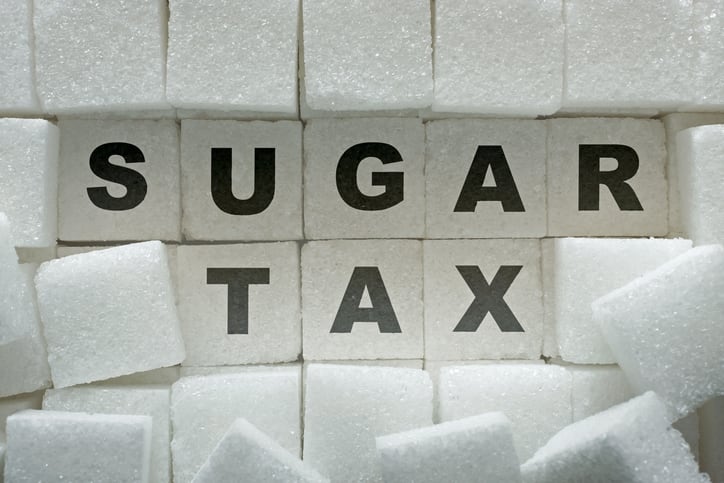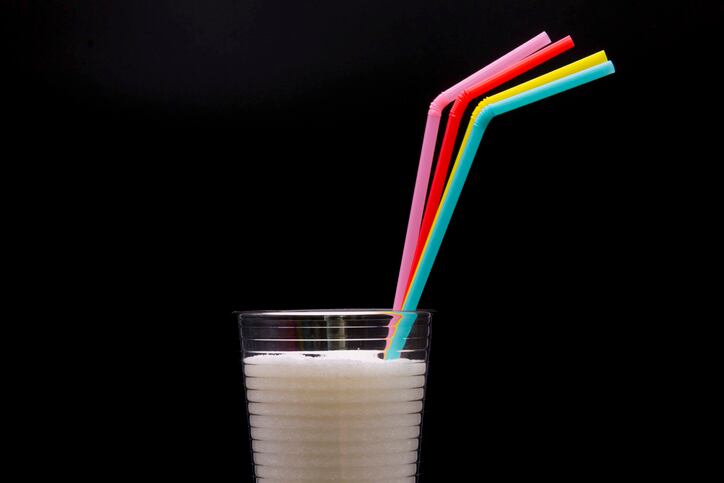The World Health Organization (WHO) continues to call on countries to increase taxes on sugary-sweetened beverages, calling them a ‘win-win-win’ strategy for public health (and averted health-care costs), a win for government revenue and a win for health equity.
In fact, 108 national sugar-sweetened beverage taxes are now in effect around the globe, according to the latest data published by the WHO in December.
Why tax sugary beverages?
Commonly simply referred to as a 'sugar tax', a sugar-sweetened beverage (SSB) tax is an additional level of tax on SSBs above that applying to most food and beverage products.
Why tax sugary drinks in this way? Compared to other food products that contain free sugars, SSBs are an appealing category of products to target for several reasons.
Firstly, SSBs are – in many countries – a leading source of free sugars, while containing little-to-no added nutritional value. And over-consumption of sugar in diets is a well-known problem: with epidemiological studies even suggests that added sugars in liquid form (such as SSBs) may pose greater health risks than sugar-containing solid foods.
Furthermore, such taxes can also raise revenue. This can either be taken in by the government, but often is earmarked to fund health policies (that might include subsidizing fruits and vegetables for low income populations, developing school policies and programs, or providing nutrition communication campaigns).
In fact, the WHO's guidance goes as far as to highlight that 'policy-makers tasked with implementing SSB taxes benefit from defining explicitly what this measure is intended to achieve.'
Is the tax about promoting healthier diets by disincentivising SSB consumption (as in Mexico and Peru) or encouraging the reformulation of products to contain less sugar (as in South Africa and the United Kingdom)? Or is it about generating additional government revenue - or a mix of both?
The mechanism of sugar taxes is, fundamentally, simple. Taxes increase the cost of the product: and usually producers pass this cost onto the consumer. More expensive products decreases their affordability and deters consumers.
But the construction of such taxes can vary enormously - and the best construction will come down to the objective of the policy.
Disadvantages of sugar taxes
The beverage industry comes down firmly against sugar taxes. Firstly, there's jobs and the economic contribution of the beverage industry to protect (in the US, that accounts to 272,000 jobs and a direct economic impact of more than $247bn, according to the American Beverage Association).
Furthermore, industry argues against the principle of 'discriminatory taxes' (higher product prices inevitably affect the poor more than the rich). And they also suggest sugar taxes are simply not effective (where taxes have been introduced in cities, it's easy for consumers to simply cross over the border to non-taxed areas).
But the WHO is wary of such arguments, and encourages careful research before introducing taxes. ("These analyses will be useful to anticipate industry opposition, which usually hinges on exaggerated or unfounded claims of the tax’s impact on employment losses, a disproportionate burden on lower-income populations or increases in cross-border shopping," it says.)
However, the picture is not always so simple. In South Africa, the industry goes beyond beverage brands: there's a large sugar-growing industry which is the lifeblood of rural communities and one million livelihoods depend on South African cane sugar, according to the South African Sugar Association.
South Africa introduced a sugar tax in 2018, and the government had planned to increase that further in 2023 - but postponed this increase in the face of the huge challenges (such as drought and lower sugar prices) already crippling the sugar-growing industry.
But it's just a hiatus. The government has told the industry it has two years to come up with a plan to readjust, restructure and come up with a way forward. Then it wants to proceed with expanding the tax.
Not just for high-income countries
Last year, a study published in JAMA Network Open estimated that 51% of the world’s population are covered by sugar taxes: drawing on data published in a Global SSB Tax Database, an open-access tool developed by the World Bank.
One of the biggest surprises thrown up by the data was that taxes are not the reserve of high-income countries with strong tax systems: in fact, sugar taxes cover 56% of people living in low- and middle-income economies.
The way a tax is designed, however, may be closely related to a country’s wealth, because capacity to administer taxes tends to be weaker in lower-income countries.
Countries such as the UK tax beverages according to a threshold(s) of sugar: for example, the UK has two levels of tax: one for beverages with 5g or more of sugar, and a second higher band for beverages with 8g or more of sugar.
Just over half of the SSB excise taxes worldwide (53%) apply multiple rates (tiers) based on product characteristics. The remainder apply at a single (uniform) rate across all taxed products (47%).
“Tiered excise taxes are more common in high-income economies (64%) compared with upper-middle–income (46%), low-income (50%), and lower-middle–income (50%) economies, likely reflecting the higher administrative burden of this approach,” note researchers.
These tiered constructions are designed to encourage manufacturers to reformulate into a lower tax bracket: an approach which has seen considerable success in the UK.
However, the complexity of verifying and monitoring sugar content often puts lower income countries off using this design: choosing instead a flat rate.
This study found a total of 118 taxes globally, including 105 national and 13 subnational taxes. A key takeaway was clear differences in designs between regions and income groups.
The study looked more closely at the geographical distribution of sugar taxes, finding that two-thirds (67%) of people living in low-income economies and three-quarters (73%) of people in lower-middle–income economies are covered by national taxes compared with less than one-third (29%) in upper-middle-income and high-income economies.
Population coverage of sugar taxes is highest in South Asia (98%), Latin America and the Caribbean (81%), and (sub-Saharan) Africa (80%) compared with Europe and Central Asia (39%), the Middle East and North Africa (24%), and East Asia and the Pacific (10%).
What beverages are taxed?
Nearly all sugar taxes apply to carbonated soft drinks and energy drinks. After that, however, the picture is much more varied.
Diet drinks are a point in question: some taxes choose to cover them, some don't: “Most excise taxes (75%) cover low-calorie sweetened beverages, for which there is emerging but inconclusive evidence of health risks associated with consumption," note the researchers.
Meanwhile, three-quarters of excise taxes also apply to concentrates (78%); however, less than half (43%) apply to sweetened milk-based drinks.
Most tax designs discriminate between free sugars that are added vs naturally present. More than two-thirds of excise taxes apply to juices sweetened using added sugar (69%), but only one-third (38%) apply to unsweetened juices (100% juice).
A curious point is that a number of sugar taxes actually cover bottled water: which appears to completely contradict their purpose of shifting consumers to healthier products.
This, notes the WHO, seems to be the result of taxes that were not necessarily introduced with health objectives in mind (if bottled water is taxed, this decreases the price differential between sugary drinks and water).
"Some countries that apply excise taxes to SSBs also apply a tax on bottled water," notes the WHO. "Many countries in Latin America, for example, have SSB excise tax policies with overly broad definitions, such that bottled water is included because this distinction was not made from the beginning — likely because these taxes did not have an initial health-related objective.
"Excluding bottled water from the list of taxable products is a clear way to strengthen SSB tax policies in these countries, by creating a price differential between SSBs and healthy non-SSB alternatives."
Source:
World Health Organization Manual on sugar-sweetened beverage taxation policies to promote healthy diets.
JAMA Network Open, Published March 29, 2023. doi:10.1001/jamanetworkopen.2023.1412


